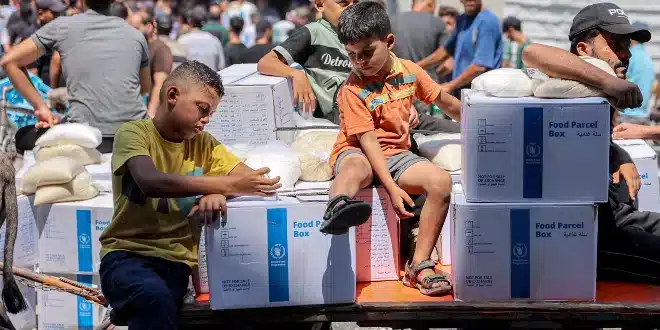Israel has agreed to implement several temporary pauses in its military operations in Gaza starting in September to allow for a polio vaccination campaign targeting young children, according to officials from the United Nations and Israel. This initiative aims to vaccinate around 640,000 children after the highly contagious polio virus was detected in Gaza’s sewage in June.
Rik Peeperkorn, the World Health Organization (WHO) representative for the West Bank and Gaza, confirmed that the vaccination drive will begin on September 1 and will be carried out in three separate three-day phases. The first phase will cover central Gaza, followed by southern and northern Gaza.
The need for this vaccination campaign arises amid a significant drop in polio vaccine coverage in Gaza. Previously at 99% in 2022, the coverage fell below 90% earlier this year due to the ongoing conflict, with more than 90% coverage required to stop the spread of the virus. Polio primarily affects children under five, potentially causing irreversible paralysis or even death.
More than 2,000 health workers have been recruited to assist with the vaccination campaign. The WHO has delivered 1.26 million doses of vaccines, with another 400,000 expected to arrive soon.
An Israeli official confirmed to CNN that the vaccination campaign will begin on Sunday, with each phase expected to last around seven hours. Vaccinations will start in central Gaza (Deir Al-Balah) from September 1 to 4, move to southern Gaza (Khan Younis) from September 5 to 8, and conclude in Gaza City and northern areas from September 9 to 12. The Palestinian Ministry of Health in Ramallah has released maps showing the locations of vaccination centers.
However, concerns remain about whether Israeli Defense Forces (IDF) soldiers will honor the pauses in fighting. A source familiar with the rollout expressed worry that IDF may still pursue Hamas targets during the pause. Hamas is aware of the pauses and is expected to use them for strategic purposes. Efforts are underway to ensure that Israeli soldiers are informed about the non-engagement policy during these pauses.
The virus’s epidemiological profile in Gaza is still largely unknown, but it is estimated that around 500 people might be carrying the strain. WHO Director-General Tedros Adhanom Ghebreyesus stated that children will receive two doses of the vaccine in two rounds, suggesting that further pauses may be necessary in the future.
Peeperkorn expressed concerns that the three-day periods allocated for the vaccination drive in each area may not be sufficient due to the extensive damage to infrastructure and the ongoing displacement of people caused by Israeli attacks.
Hamas has expressed its willingness to cooperate with international organizations to ensure the success of the vaccination campaign. Basem Naim, a member of the group’s political bureau, welcomed the initiative for a pause in fighting to allow for the drive.
The urgency of the campaign was highlighted by the recent case of an 11-month-old boy, Abdul Rahman, who became Gaza’s first recorded polio case in 25 years. His mother, Niveen Abu al-Jidyan, shared how her son’s health rapidly deteriorated from fever and vomiting to partial paralysis, a stark reminder of the devastating effects of the disease.
Meanwhile, ahead of the scheduled pauses, Israel’s offensive in Gaza continues. The Israeli military recently conducted an airstrike on a humanitarian convoy in Rafah, claiming that it had been commandeered by armed men. Anera, a US-based charity involved with the convoy, reported the deaths of several employees from a transport company during the attack. The convoy had been carrying medical supplies and fuel for the Emirati Red Crescent hospital in Gaza.
In response to the strike, Anera condemned the incident as “shocking,” while the IDF maintained that the attack targeted only the armed individuals and that the Anera employees had safely reached their destination.
In a separate incident, the World Food Programme (WFP) reported that it is suspending movement of its staff after one of its vehicles, clearly marked as a humanitarian aid vehicle, was repeatedly shot at near an Israeli checkpoint.
Humanitarian organizations have emphasized the importance of reliable safety guarantees for the success of the vaccination campaign. Kate Phillips-Barrasso, vice president of Mercy Corps, warned that Gaza is currently “the most dangerous place in the world to be a child or a humanitarian worker.”


